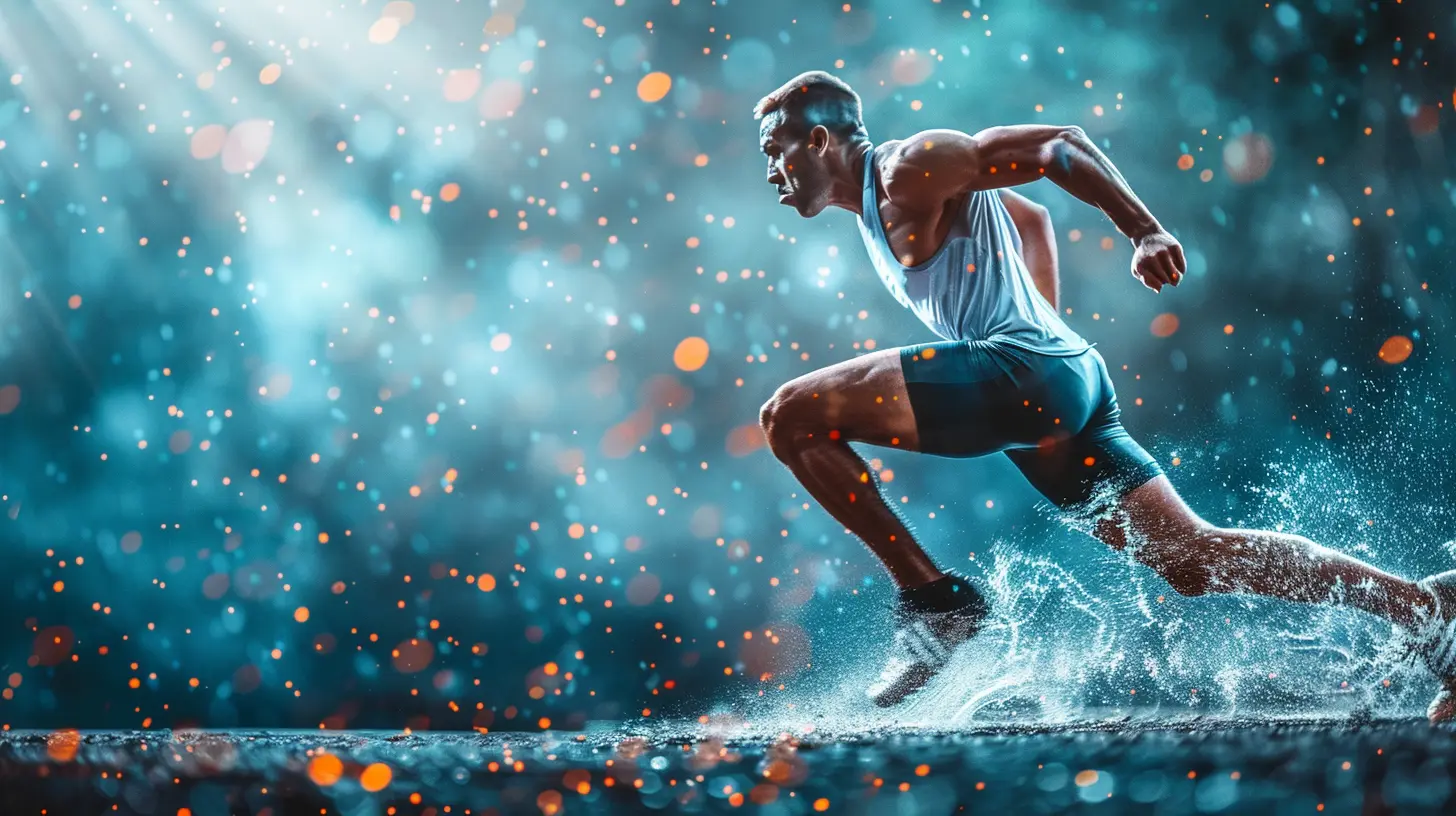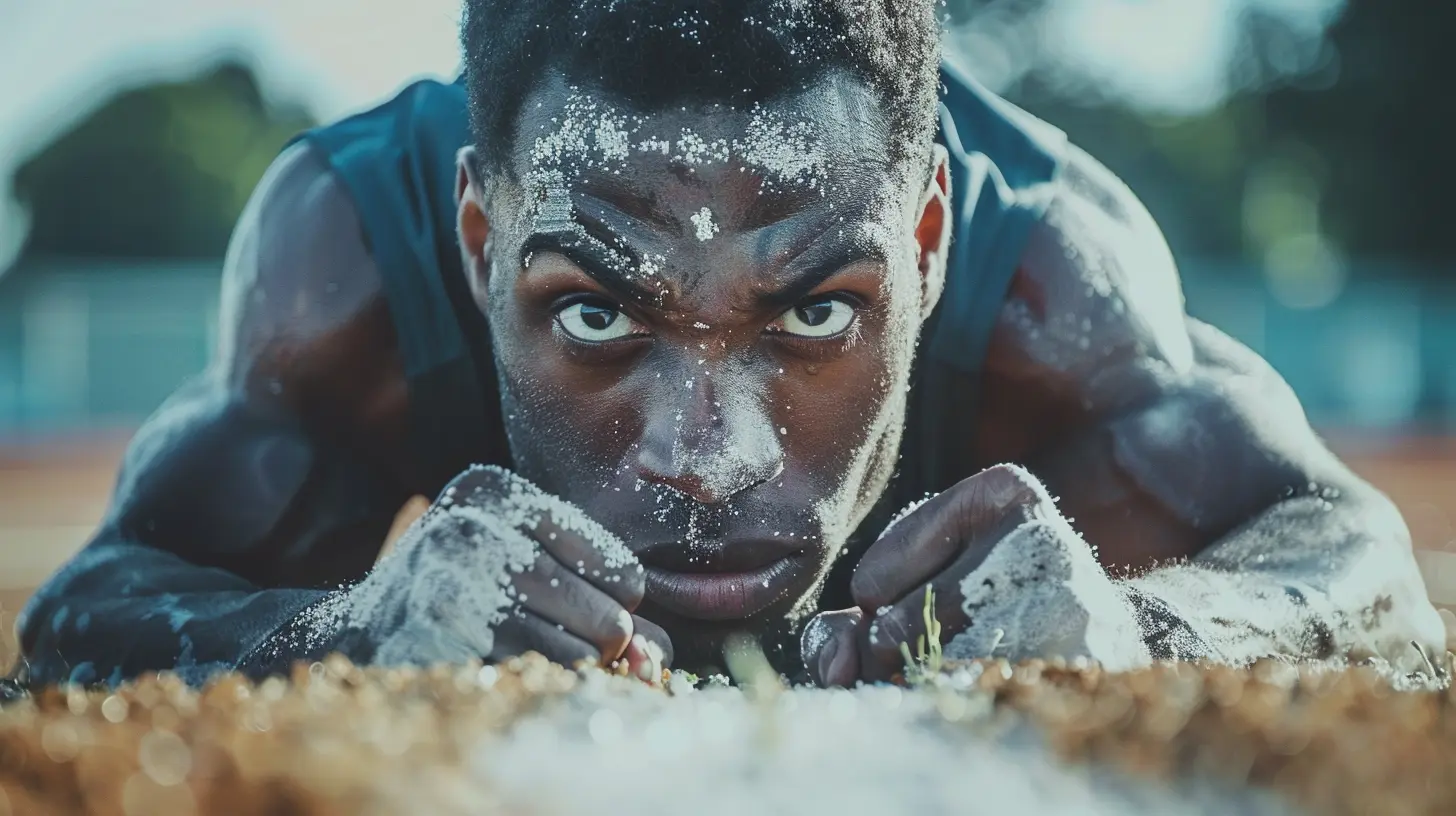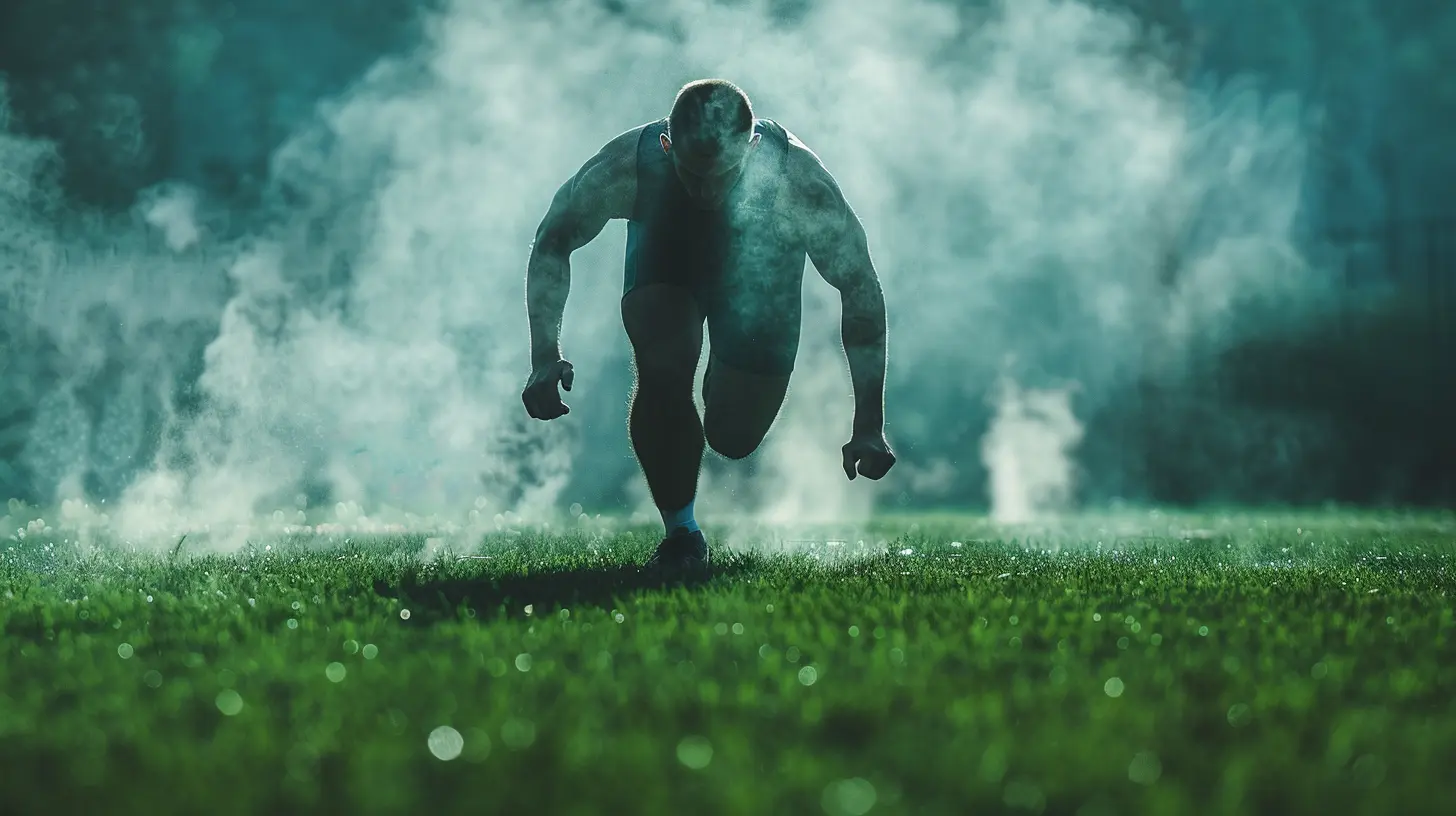Handling Pressure: How Elite Athletes Stay Calm in Crucial Moments
23 June 2025
Let’s be real for a second—pressure is brutal. Whether you're standing at the free-throw line with everything on the line, teeing off for a championship, or even just giving a speech in front of a crowd, pressure feels like a weight on your chest. But here’s the kicker: elite athletes seem to handle it like pros. Ever wonder how they stay cool when everything is riding on that one moment?
Welcome to the inside scoop on how elite athletes deal with pressure—and how you can steal their playbook to stay calm when it matters most.
Why Pressure Feels Like a Monster
Before we get into the tips and tricks, let’s talk about why pressure feels so overwhelming. Our brains are wired for survival. When we perceive something as high-stakes, our fight-or-flight response kicks into overdrive. Heart races. Palms sweat. Thoughts scatter. That’s your brain yelling, “Important alert! Don’t screw up!”But here’s the twist: Pressure is just a perception. The situation doesn’t change—you do. Elite athletes train their minds to respond, not react. They don’t eliminate pressure; they neutralize it.
1. Preparation: Confidence Comes from Reps
“Pressure? That’s just something you feel when you don’t know what you’re doing.” — Chuck NollThink about it: when you study for a test, you feel relaxed. When you wing it, your stomach does cartwheels. The same logic applies to athletes. They prepare relentlessly, so when the big moment comes, it feels like just another day.
- Repetition builds muscle memory. Elite athletes run through game scenarios over and over until instinct takes over.
- Practice under pressure. They simulate tough situations in training—crowd noise, time limits, physical fatigue—to mimic the real deal.
So when you see a tennis player nail match point or a quarterback throw a perfect pass under a blitz—it’s not luck. It’s rehearsal.
2. Control the Controllables
You can’t control the weather, the ref, or the crowd—but you can control your mindset. Elite athletes master this.They don't waste energy on things they can’t change. Instead, they zero in on what they can influence: their attitude, effort, and focus.
Top techniques include:
- Breathing exercises: Deep, rhythmic breathing calms your nerves and keeps your brain oxygenated.
- Routines: Watch golfers or basketball players—they have a pre-shot routine. It gives their brain a sense of normalcy.
- Mantras: Short, positive phrases like “Stay sharp” or “One play at a time” anchor them when stress kicks in.
In the middle of chaos, routine is their calm in the storm.
3. Visualization: See It Before You Do It
You’ve heard athletes say they “saw it happening” before it did? That’s not just flair—that’s visualization, and it’s powerful.Mental imagery is like a mental dress rehearsal. Athletes imagine every detail—the sound, the feel, the movement. It helps train the brain to feel familiar with success, even before it happens.
- Michael Phelps visualized his races down to the smallest motion.
- Lindsey Vonn, the elite skier, mentally skied down every slope before actual races.
This technique builds confidence and rewires your brain to believe you can do it—because in your mind, you’ve already done it a dozen times.
4. Embracing the Moment: Pressure as Privilege
Here’s something that might twist your brain a bit: Elite athletes thrive on pressure. Why? Because they see it as a privilege, not a punishment.Think about it—pressure only exists when something matters. That final shot, that clutch moment—it’s a sign that you’ve made it to the stage everyone’s watching. That’s not scary; that’s golden.
Great athletes shift their mindset from:
- “I don’t want to mess this up,” to
- “I have a chance to shine.”
They flip the script. Pressure doesn’t crush them; it fuels their fire.
5. Focus on the Process, Not the Outcome
One of sport’s biggest truths? You can’t control the outcome—only how you get there.Elite performers stay laser-focused on the process:
- Runners think about their stride, their breathing—not the finish line.
- Basketball players focus on form and rhythm—not the scoreboard.
This keeps their minds in the present moment and keeps anxiety—aka future-focused fear—at bay.
When you fixate on winning, you’re chasing something out of reach. But when you focus on your game, winning becomes a byproduct.
6. Experience Builds Composure
Let’s not ignore the obvious—experience matters. Elite athletes didn’t master pressure overnight. They’ve been there, done that, and made mistakes along the way.- Remember when LeBron James choked early in his career? He learned.
- Tom Brady didn’t become “Mr. Clutch” in his rookie year. He earned it over decades.
Each high-pressure moment teaches them something. Over time, nerves fade, and muscle memory and mental toughness take over.
Here’s the good news: You can build this too. Every stressful situation you face is a rep for your mental game.
7. Support Systems: They Don’t Go It Alone
No athlete does it solo. Behind every elite performer is a team—coaches, psychologists, trainers, and teammates.Mental health is no longer taboo in sports. Top players openly talk about working with sports psychologists to keep their minds sharp.
- Simone Biles stepped away from the Olympics to prioritize her mental health.
- Kevin Love broke the stigma around anxiety and professional sports.
Having people in your corner—who lift you, guide you, and ground you—is a game changer. Never underestimate the power of a good hype squad.
8. Staying Present: The Power of Now
If you’re freaking out about the clock winding down—you’re not in the moment.Athletes who stay calm under pressure have this one key ingredient: presence. They don’t let their minds jump into the future or get stuck on past mistakes. They lock in on right now.
Mindfulness practices help build this skill:
- Meditation
- Grounding techniques
- Body scans (focusing on how your body feels in the moment)
The world might be shaking around them, but elite athletes train themselves to stay still inside.
9. Channeling the Nerves: Turn Anxiety Into Energy
Here’s a secret: Nerves aren’t the enemy.The physical symptoms of anxiety—racing heart, sweaty palms—are the same as excitement. Elite athletes learn how to frame their nerves positively.
Instead of saying “I’m anxious,” they say, “I’m ready.”
They channel that surge of adrenaline into focus. That’s like turning a shaking hand into a steady one.
So next time your heart pounds before a big moment, smile and say it: “Game on.”
10. Resilience: Bouncing Back is Part of the Game
Pressure doesn’t always lead to victory. Even the greatest fail sometimes. But what sets elite athletes apart? They bounce back.They analyze, adapt, and move on. No sulking, no dwelling. Just forward motion.
- Kobe Bryant once missed a game-winning shot and went straight to practice afterward.
- Serena Williams lost big matches, but always returned stronger.
Mistakes are feedback, not failure. Resilience builds confidence. Confidence fuels performance. It's a cycle—and a powerful one.
Final Thoughts
Pressure is inevitable—but panic is optional.What makes elite athletes so special isn’t that they don’t feel pressure. It’s that they’ve trained themselves to rise above it. They’ve learned to dance with the nerves instead of fighting them off.
You don’t have to be in the Super Bowl or the Olympics to use these strategies in your own life. Whether you’re prepping for a big meeting, taking a shot in a pick-up game, or chasing a dream, the same mental game applies.
Remember: pressure isn’t your enemy—it’s your proving ground.
So the next time you feel the heat, take a breath, trust your prep, and step into the moment. You've got this.
all images in this post were generated using AI tools
Category:
Sports PsychologyAuthor:

Ruben McCloud
Discussion
rate this article
1 comments
Nym Long
Excellent insights on mental resilience; balancing pressure and performance is key for elite athletes' success.
June 24, 2025 at 12:56 PM

Ruben McCloud
Thank you! I'm glad you found the insights valuable—balancing pressure and performance truly is essential for success in elite sports.


